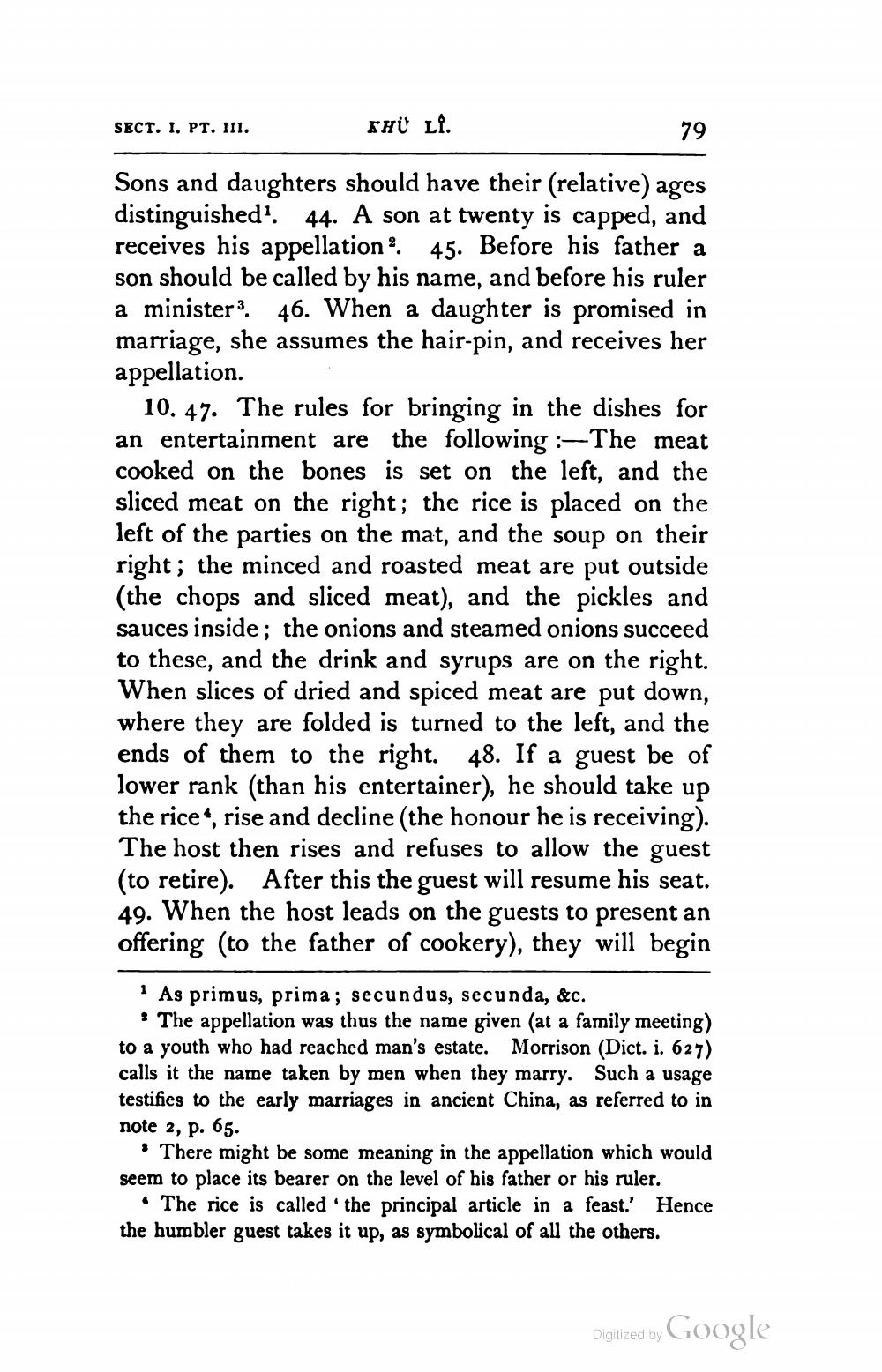________________
SECT. I. PT. III.
KHU LI.
79
Sons and daughters should have their (relative) ages distinguished'. 44. A son at twenty is capped, and receives his appellation? 45. Before his father a son should be called by his name, and before his ruler a minister 46. When a daughter is promised in marriage, she assumes the hair-pin, and receives her
appellation.
10. 47. The rules for bringing in the dishes for an entertainment are the following :-The meat cooked on the bones is set on the left, and the sliced meat on the right; the rice is placed on the left of the parties on the mat, and the soup on their right; the minced and roasted meat are put outside (the chops and sliced meat), and the pickles and sauces inside; the onions and steamed onions succeed to these, and the drink and syrups are on the right. When slices of dried and spiced meat are put down, where they are folded is turned to the left, and the ends of them to the right. 48. If a guest be of lower rank (than his entertainer), he should take up the rice“, rise and decline (the honour he is receiving). The host then rises and refuses to allow the guest (to retire). After this the guest will resume his seat. 49. When the host leads on the guests to present an offering (to the father of cookery), they will begin
* As primus, prima; secundus, secunda, &c.
* The appellation was thus the name given (at a family meeting) to a youth who had reached man's estate. Morrison (Dict. i. 627) calls it the name taken by men when they marry. Such a usage testifies to the early marriages in ancient China, as referred to in note 2, p. 65.
• There might be some meaning in the appellation which would seem to place its bearer on the level of his father or his ruler.
•The rice is called the principal article in a feast.' Hence the humbler guest takes it up, as symbolical of all the others.
Digitized by Google




